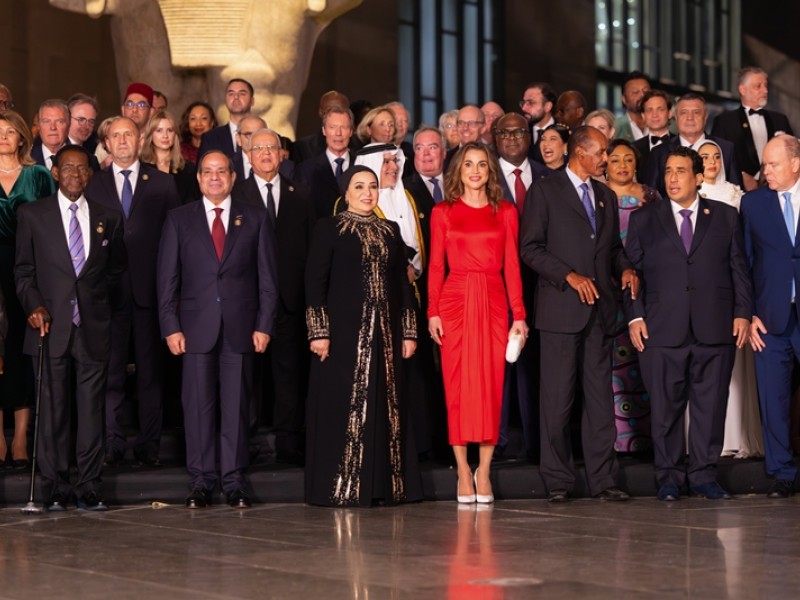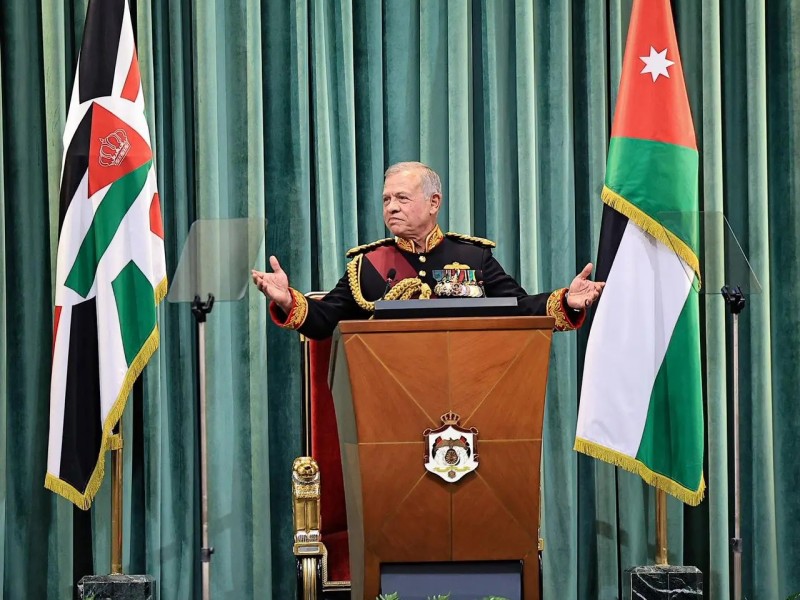Queen Rania Launches "The State of the World's Children 2003" UNICEF Report
(Office of Her Majesty, Press Department - Amman) Her Majesty Queen Rania Al Abdullah launched "The State of the World's Children 2003" UNICEF Report that calls for greater participation of children in decisions affecting their lives.
The launching of the UNICEF report is part of Queen Rania's efforts in supporting programs that contribute to improving the lives of children and youth in Jordan and internationally.
As member of UNICEF's Global Leadership Initiative, Queen Rania had stressed the importance of global commitment towards improving the lives of children.
"When children are excluded from the process of decision-making and are provided few opportunities to engage constructively in matters that directly affect them as they mature, they fail to develop vital skills, including the to ability express themselves, negotiate differences, make responsible life choices, engage in positive dialogue or assume responsibility for themselves, for their families, or communities," said Misrak Elias, UNICEF Representative in Jordan.
At the launch of UNICEF's flagship annual report, "The State of the World's Children 2003", Elias noted "through participation beginning at early ages in issues that concern them, we see a generation of young people who are more respectful and concerned about their rights and the rights of others. This is far from promoting anarchy or disrespect for authority, or undermining parental authority."
The State of the World's Children 2003 examines the largely unexplored issue of "child participation" – that is, the degree to which children and young people are enabled to constructively engage in issues that affect their lives.
The report asserts that the participation of children is essential to preparing them for the responsibilities they will assume as adults, as well as to more cohesive societies.
Three children, representing examples of child participation in Jordan, spoke about their experiences at the ceremony: Raja Qamar (14) and Lina Arjah (15) spoke about their participation in the intergenerational dialogue project.
They worked all year long on identifying issues of concern to young Jordanians and developed a media strategy to address and promote dialogue among families and across genders.
They have met with media heads this year and accordingly plan to develop programs to address youths and their families next year.
Salma Zubdeh (14) spoke about her participation in the UNICEF-sponsored Basic Life Skills training, how it helped her improve her communication and negotiation skills, and the general impact this has had on her life.
Beyond the long-term benefits to children themselves and the societies they grow to lead, the report finds that when children are given an appropriate way to participate in adult decisions and action, those decisions and actions tend to be more positive, more creative, more energetic, and more fruitful.
This message was also conveyed through a documentary shown at the event about UNICEF's Adolescents Project. "Children and adolescents have proved that when they are involved, they can make a difference in the world around them. They have ideas, experiences and insights that enrich adult understanding and make a positive contribution to adult actions," the report states.
The UNICEF document argues that world leaders must tap into young people and recognize them as important resources. It calls on governments to begin teaching children democratic values in early childhood by expanding children's access to education and participation in civil society and government.
The UNICEF report points out that 150 million children still suffer from malnutrition, 120 million school-age children are not in school (the majority girls), and 6,000 children and young people are infected with HIV every day.
The report argues that engaging children and young people and including them in the decision-making processes and in the prevention effort that affect their lives is essential to addressing these problems.
"Listening to the opinions of children does not mean simply endorsing their views," the report notes. "Rather, engaging them in dialogue and exchange allows them to learn constructive ways of influencing the world around them. The social give and take of participation encourages children to assume increasing responsibilities as active, tolerant and democratic citizens in formation."
Featured
Queen Rania's official website
This website does not support old browsers. To view this website, Please upgrade your browser to IE 9 or greater
Your browser is out of date. It has known security flaws and may not display all features of this and other websites. Learn how to update your browser



